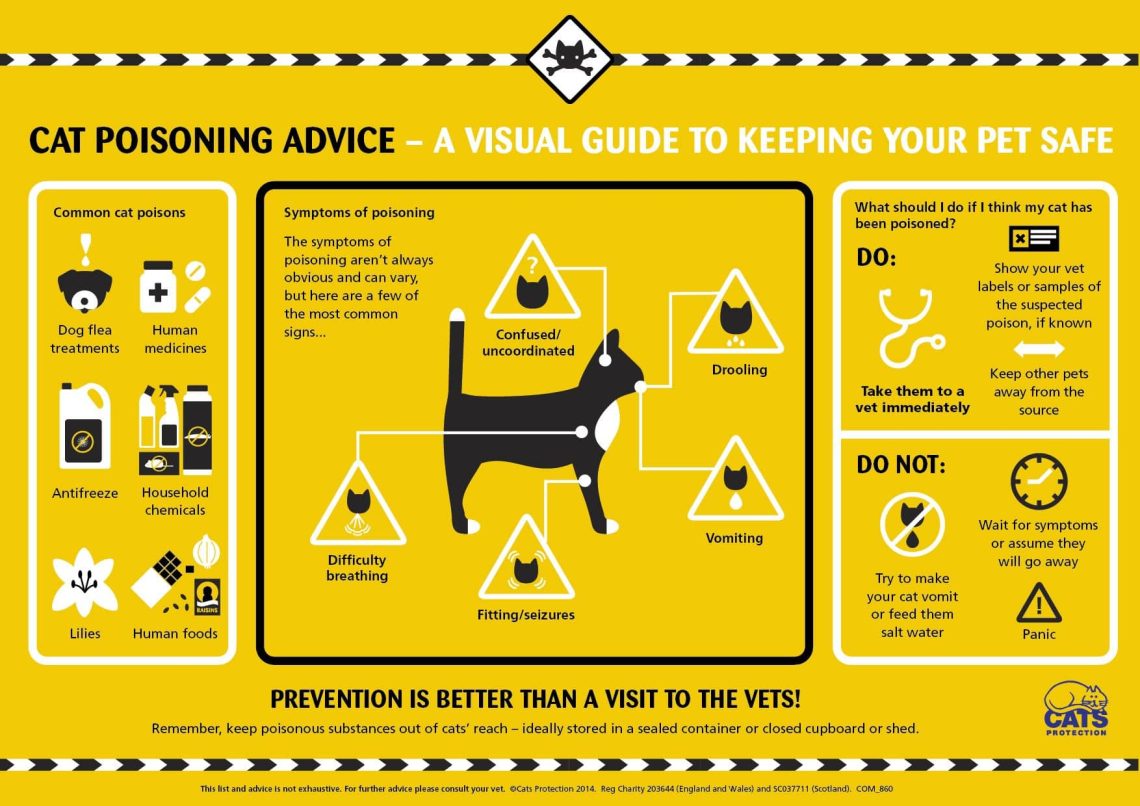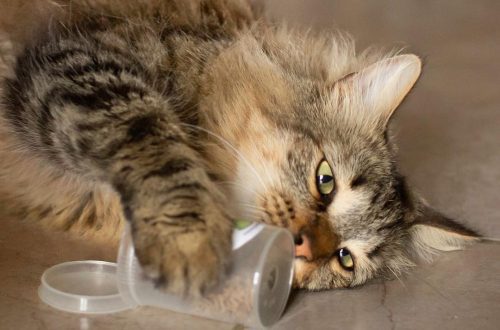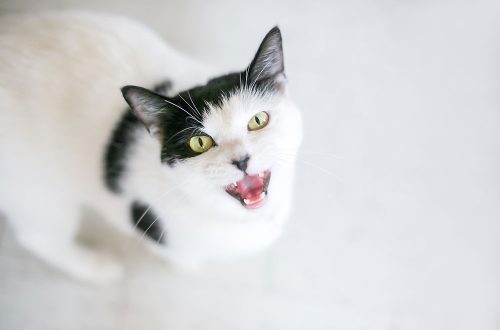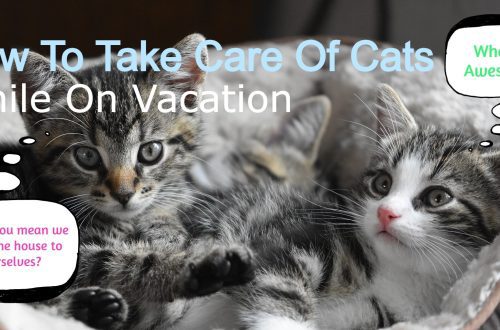
What to do if the cat is poisoned: signs and first aid
Cats are very curious creatures and love to taste everything they can reach. How can you tell if something is wrong with your pet?
If an adult animal already understands that it is better not to lick certain things and plants, then it is very difficult to explain the danger to a kitten.
Contents
Poisoning reasons
In any home, you can find objects, foods and plants that can be dangerous for a pet.
Poisonous plants. Not all flowers are good for a cat. For example, bulbous flowers such as tulips, lilies, daffodils and hyacinths can be very dangerous. Even small pieces eaten by a pet can affect the functioning of its gastrointestinal tract, kidneys and liver. Aloe is also poisonous.
Medicines. Any human pills should be kept in cabinets that are not accessible to the cat. Non-steroidal anti-inflammatory drugs, painkillers, antidepressants and sedatives are especially dangerous. When ingested, specialized topical preparations for fleas and ticks are also poisonous.
Stale products. Stale food is dangerous for both humans and animals. Poisoning in a cat can also be caused by any food that is not intended for it, such as garlic, onions, chocolate, alcoholic beverages, certain vegetables and fruits, grapes.
Detergents. Dishwashing detergents, washing powders, gels for appliances and other products contain a large amount of chemicals that have a bad effect not only on the cat’s gastrointestinal tract, but also on the mucous membranes. When inhaling washing powder, the animal may develop an allergic reaction.
Essential oil. Citrus based oils are extremely toxic to pets. Do not leave them open and apply to the cat’s coat. Poisoning can also occur when the oil gets inside, and when its vapors are inhaled.
Signs and symptoms of poisoning
The symptoms of poisoning in cats are somewhat similar to the signs of poisoning in humans. The main ones are:
- vomiting;
- diarrhea;
- behavior change;
- loss of appetite, thirst;
- salivation.
All symptoms can develop over time: the temperature may rise or fall in the cat, convulsions may appear, the mucous membranes become very red. The first signs of poisoning in a cat appear, depending on the toxin, immediately or after a short time.
First aid for poisoning
First of all, it is necessary to limit the cat’s contact with toxins: wash off everything that is on it from the coat without using shampoos. Then you need to wash her muzzle and wipe her paws properly. You should not try to induce vomiting in the animal or gastric lavage yourself: these actions can be harmful.
If the cat is poisoned, it is best to immediately seek advice from the nearest veterinary clinic. The specialist will conduct the necessary examinations and confirm the diagnosis, since the signs of poisoning are often similar to other feline diseases, such as asthma or intestinal obstruction.
Upon confirmation of poisoning, the veterinarian will prescribe treatment:
- gastric lavage in the clinic;
- the use of absorbent drugs;
- supportive drug therapy.
Home security
Before the appearance of an animal in the house, you need to carefully examine the space for potentially toxic things: plants, chemicals, and so on. You should not accustom a cat to food from the table: most of the human food is poorly tolerated by the animal’s body.
Keep all detergents and medicines in lockable drawers and do not leave them in the public domain. It is necessary to conduct an audit of house plants and either remove poisonous ones from the house, or move them so that the cat cannot reach them.
A cat is a source of joy and inspiration in the home. It is necessary to carefully monitor her condition and behavior in order to avoid problems in the future.
See also:
- Possible health problems for your kitten
- Can cats get colds or the flu?
- Anxiety in a cat: causes and signs
- Important information about food allergies and intolerances in cats





